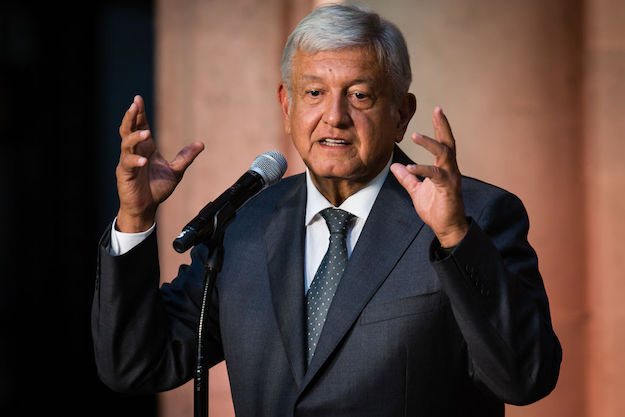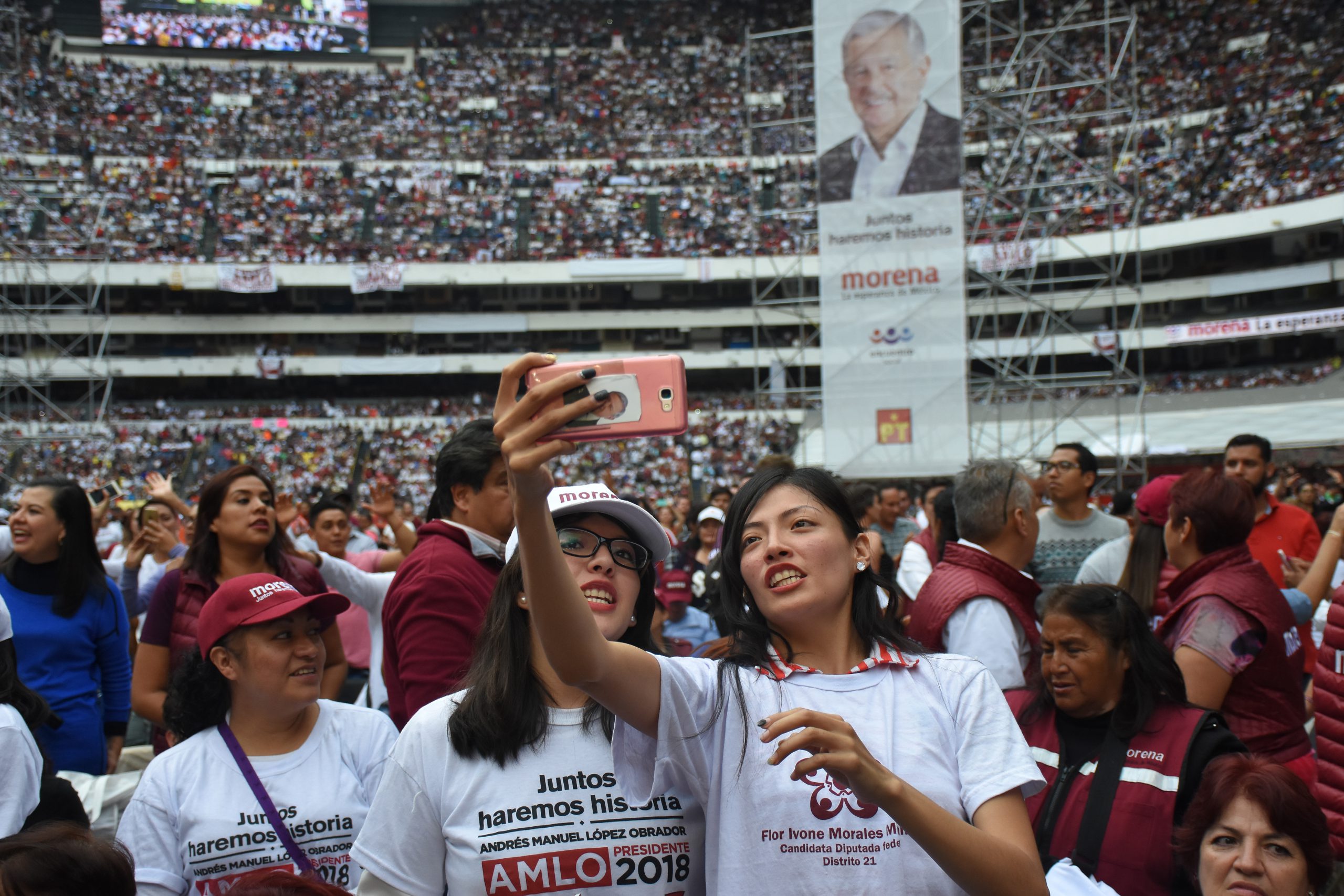President Andrés Manuel López Obrador’s first year in office brought with it an almost comprehensive questioning of Mexican civic life.
Throughout 2019, AMLO, as the president is widely known, took every opportunity to disassemble political institutions and government programs and remake them in his own image. His approach had the positive effect of prompting a reassessment of the most fundamental “rules” of Mexican politics. From the salaries that presidents, judges and bureaucrats should earn, to whether Mexico’s independent institutions have done their job in protecting public, rather than private interests, to the role of the Supreme Court in a country where democracy is still in the process of consolidation: Absolutely everything has come up for argument since AMLO became president.
This type of self-reflection and extreme politicization has not been in vain – in the past, an ingrained consensus has held that dubious pacts, backroom deals and other unwritten rules of Mexican politics were unchangeable. Few average voters engaged deeply with the issues of the day, perhaps because of the false idea that politics is better left to the elites, or simply because too many Mexicans behaved as what political scientist Guillermo O’Donnell calls “low intensity” citizens.
But in 2020, Mexico will need answers to at least some of the questions it began asking itself in earnest last year. That starts with the president himself – and whether he can find a less divisive way to take stock of, and try to correct, the country’s ills. If the most important legacy of AMLO’s first year in office was for Mexicans to realize that the flawed outlines of their political system were not etched in stone, the most important step forward in the next year will be for the president to show that the dismantling of institutions he undertook in 2019 was for a purpose, and not an end in itself. He needs to show that the programs he’s offered to replace the old way of doing things can actually make Mexico better.
For that reason, 2020 will likely be the most important of AMLO’s presidency. The size of his election victory gave him the tools – in particular, a majority in Congress and of state legislatures – to make fundamental changes to the political landscape. The idea of a “Fourth Transformation” of public life may have started simply as a campaign slogan, but his dominance at the polls made it an at least partially achievable aim.
But those conditions will not hold forever. AMLO’s congressional opposition will consolidate and rebalance. His allies will start to pursue their own interests. For López Obrador’s promised transformation to be a success, it needs to quickly show signs – in the way of facts and measurable data – that it is solving the problems he has diagnosed.
Unfortunately, the prospects for that happening are not particularly favorable: economic growth in 2020 is expected to be around 1%, and despite coming off the most violent year in Mexico’s modern history, it is difficult to imagine a change in the administration’s strategy when it comes to security. AMLO’s personal style – and his reliance on an “us vs. them” narrative – does not lend itself to course correction. It’s easier to envision the politicization that has gripped Mexico as increasingly leading to conflict and retrenchment, rather than being a constructive approach within the political sphere. In other words, this extreme social politicization is evolving into the kind of political polarization that will inhibit real progress.
To be sure, the fact that politics has inserted itself into every nook and cranny of daily life owes both to the president’s omnipresent personality and to changes in global political dynamics that are beyond him and took shape following the financial crisis in 2008. Forty years since its inception, the neoliberal consensus – which extols the private over the public for the sake of efficiency and competitiveness, and skeptically views politicians as a block on the proper functioning of the market – is falling apart not just in Mexico, but around the world.
AMLO is a natural vehicle to question the institutional basis of what was, in his eyes, the “long neoliberal night.” He challenges the virtue of independent organs that base their decisions on rationality and technical expertise, as well as the need for a division of powers and a concrete role for the Supreme Court that consists primarily in limiting political authority. He questions even the belief in a democracy whose archetype is representative, rather than direct.
But even if that type of questioning is necessary – and perhaps inevitable given the current global climate – there are constructive ways to go about it. Increasingly, in Mexico this questioning has by contrast been rooted in disqualification. Questions are raised together with an adjective of moral denigration or rejection of those who espouse a different way of doing things. Detractors are out of touch or “conservatives.” Only AMLO speaks for the pueblo.
In the end, what should be debate and dialogue becomes diatribe, a question of good and evil. The downside to Mexico’s yearlong self-interrogation is precisely that it has come from the pulpit of the president, in daily morning press conferences that have forced a long list of public officials, commentators and civil society organizations to respond directly to López Obrador in an effort to justify their purpose in a functioning democracy. The result is to turn a political argument into a moral one.
AMLO has forced everyone, especial Mexico’s elites, to step out from their comfort zone and re-examine their conception of the political world. This could be healthy for democracy, so long as the elite listen earnestly and those in power do not disqualify their adversaries on moral grounds. But as politicization becomes polarization, Mexico risks blowing up the political space needed for the kind of agreements that keep the common house we (still) call democracy in order. Politics is conflict, yes, but not all the time, not always; politics is also compromise and agreement.
—
Vivanco Lira is a lawyer from the Mexico Escuela Libre de Derecho and holds a master’s in legal reasoning from the University of Alicante. He also holds a master’s degree in political theory from the London School of Economics and Political Science, and is a Ph.D. candidate in law at the University of Chile. He is a frequent panelist on the program “Punto y Contrapunto” on ForoTV. Follow him on Twitter @MartinVivanco







